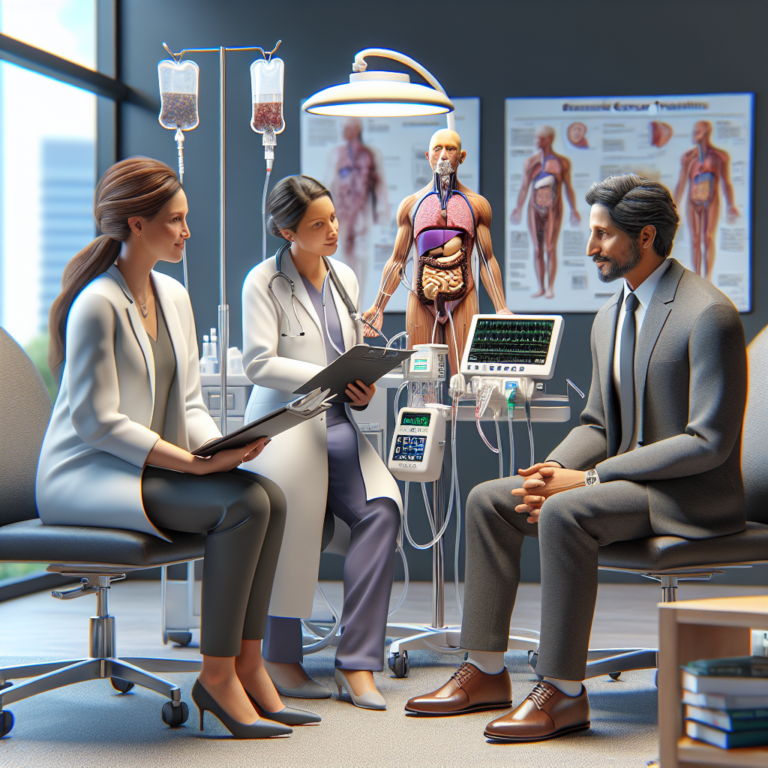Thriving with Cancer: Essential Tips for Daily Living and Empowerment

Navigating life with a cancer diagnosis can feel overwhelming, whether you are facing it yourself or supporting a loved one. Having been through this journey, I aim to share practical insights that can help ease the burden. My experience as a stage IV oropharyngeal squamous cell carcinoma (OPSCC) survivor since July 3, 2020, combined with my background as a clinical psychologist, has equipped me with valuable strategies to manage life with cancer.
Essential Tools for Cancer Management
As you embark on this challenging path, having the right tools can significantly impact your quality of life. Here’s a collection of items that not only ease treatment but also enhance daily living:
-
PICC Line Protection: If you’re receiving frequent intravenous treatments, consider getting a peripherally inserted central catheter (PICC) line to minimize needle sticks. Protect your PICC line with a stylish sleeve; options for women are more varied than for men, but both are essential for protection.
-
Oral Care: Preventing thrush is crucial. Use an ultra-soft toothbrush to gently clean your mouth, and consider a home suction device for added effectiveness.
-
Nighttime Safety: Invest in night lights to illuminate pathways in your home, reducing the risk of falls in the dark.
-
Comfort while Writing: A lap desk paired with a flexible lamp can make writing in bed far more comfortable.
-
Organized Tech: Use a cable bag to keep your chargers and cords untangled. A power strip in every room ensures you’re never short on outlets.
-
Mobility Aid: A lightweight walker with a shelf can help carry items easily while maintaining stability.
- Sealed Containers: Always opt for food and drink containers with screw lids to avoid spills and leaks.
Best Practices for Coping with Cancer
Just like elite military units focus on fundamental skills, cancer patients can benefit from establishing good practices that support their health and well-being. Here are some essential routines:
-
Palliative Care Connection: Consider joining a palliative care program. This type of care focuses on symptom management rather than curing cancer, allowing you to continue your current treatment while benefiting from specialized pain management.
-
Go-Bag Essentials: Prepare a go-bag with all your critical items. This can be a lifesaver during unexpected hospital visits or while spending time outside your usual environment.
- Organizational Systems: Use a “bag within a bag” approach to keep everything organized. Ensure all bags have zippers to prevent loss of items.
Health and Fitness Routines
Maintaining a routine for your physical and dental health is vital during cancer treatment:
-
Dental Hygiene: Daily dental care is essential, especially since chemotherapy and radiation can lead to mouth sores.
-
Stay Active: Regular exercise, like yoga or cycling, can help prevent weakness and reduce the risk of falls, which can be dangerous for those undergoing treatment.
-
Master Your Health Portal: Familiarize yourself with your hospital’s patient portal, such as Epic™ or MyChart™, to keep track of appointments and medical records.
- Pet Therapy: Don’t forget to spend quality time with your pets. Their companionship can provide emotional support and comfort during tough times.
Final Thoughts
If these tips resonate with you or could assist someone else facing cancer, feel free to share this article. My journey through cancer has been chronicled on my Substack, where I delve into both everyday struggles and broader insights about living with illness. For more information, check out my scientific writings or visit my author website for additional resources.
William Gardner is a child psychologist and a researcher focused on mental health services. He holds a professorship in epidemiology and psychiatry at the University of Ottawa and has contributed to esteemed journals like Science and the New England Journal of Medicine. For further reading, explore his works on The Incidental Economist and his Substack for personal reflections and research insights.






